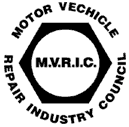Car manufacturers refitting vehicles with faulty Takata airbags
At least five car makers in Australia have recalled their vehicles over dangerous airbags, only to refit them with a similarly faulty product, an investigation by consumer group Choice has found.
The manufacturers are among 14 affected in Australia by a worldwide recall of Takata airbags, which have now killed 18 people and injured more than 180 worldwide. The death of a man in Sydney last week was also likely caused by the faulty airbag.
The airbags have the potential to explode and send metal shrapnel and other material into the cabin of a vehicle, because the gas used to inflate the bag can become volatile over their lifespan of around six years.
The Australian Competition and Consumer Commission has launched a further investigation into how the recall has been handled, "urgently seeking" information from the Department of Infrastructure and Regional Development, which is monitoring the recall.
Since April Choice has repeatedly contacted the 14 manufacturers subject to the recall to confirm if they were refitting vehicles with airbags now found to have similar faults, and would therefore require a second recall.
Takata airbag recall results to date. (Photo. Choice)
"Although Toyota, Mazda, BMW, Lexus and Subaru admitted to Choice they made identical replacements, perhaps more worrying are the other manufacturers who continue to refuse to share this information with the public," Choice spokesman Tom Godfrey said.
Honda and Nissan were among manufacturers with recall-affected vehicles identified by Choice as "remaining silent" on the safety issue.
The investigation also highlighted reports that consumers responding to the recall were being told they would have to wait more than six months before their cars could be attended to.
On Friday, NSW Police said the death of 58-year-old small business owner Huy Neng Ngo on July 13 was likely caused by a faulty airbag. Mr Ngo was killed when his Honda CRV was involved in a collision with a Toyota Celica in Cabramatta.
ACCC chairman Rod Sims said Mr Ngo's death was "desperately sad" and brought home the seriousness of the issue.
"We would have very serious concerns if manufacturers were found to be misleading consumers," he said, adding that the ACCC would be speaking to the Department of Infrastructure and Regional Development "urgently".
"When this issue first came to light, industry just did not have [capacity] to replace them all. However we are advised that there is now sufficient stock, so we would question any advice that quotes a six-month wait."
Mr Sims said that while it was originally thought new airbags did not have the same fault, "that view has changed", so some vehicles now require a second recall.
"Our advice to consumers is not to panic... and if consumers have already had their airbag replaced, they should contact their manufacturer for advice as to what kind of airbag it was replaced with and how long it is expected to last."
The Department of Infrastructure and Regional Development was contacted for comment but did not respond by deadline.
A Subaru Australia spokeswoman said 7359 vehicles had been repaired with airbags that will subsequently need changing again.
"We have also sourced 63,670 airbags that will not require subsequent replacement and expect an additional 76,882 of these airbags to be delivered by the end of 2017," she said, adding that an increase in available parts was reducing the wait faced by consumers.
In Australia there are more than 2 million affected vehicles, 31 per cent of which had faulty airbags replaced by April this year.
A spokesman for Toyota and Lexus said Takata-produced inflators "without desiccant" had acted as a safe replacement for a number of years, however they also need to be replaced again.
"For potential future recalls for certain models we will continue to take actions as necessary, keeping the safety and security of our customers in mind," he said.
In a statement, a Nissan spokesman said it was conducting a number of voluntary product safety recalls to investigate airbag inflator modules in various Nissan models.
The ACCC will be closely examining the current recall strategies to ensure each manufacturer is complying with its obligations.
Motorists who drive affected vehicles are advised to keep up to date with Product Safety Australia's latest consumer updates.
Fairfax Media contacted Mazda, BMW and Honda for comment, but they did not respond by deadline.
Choice's investigation highlighted testing by the US National Highway Traffic Safety Administration in June last year, in which 660 of 245,000 airbags ruptured.
"If you were to apply the same percentage of these failures to the 1.44 million cars in Australia yet to be recalled, the number of airbags that would deploy defectively would be 3889," Choice found.
Read Choice's full investigation into Takata
Update, 25 Sept: This FAQs was updated to reflect the increasing number of fatalities and injuries. We also added information on the compulsory recall notice that has since been drafted. Click Here
Note: More makes and models are expected to be added to this list by April 1st, 2018.
References:
Fair Trading (2017). The recall of Takata airbags: what Australians need to know. Retrieved from https://www.choice.com.au/transport/cars/general/articles/takata-airbags-what-you-need-to-know-in-australia-230717
Sydney Morning Herald (2018). Car manufacturers admit to refitting vehicles with faulty Takata airbags. Retrieved from
https://www.smh.com.au/business/consumer-affairs/car-manufacturers-admit-to-refitting-vehicles-with-faulty-takata-airbags-20170723-gxgt9q.html
Choice (2017). Airbags that kill: Australia stalls on Takata airbag recall. Retrieved from
https://www.choice.com.au/transport/cars/general/articles/airbags-that-kill-australia-stalls-on-takata-airbag-recall


Sydney Auto Inspections' mobile services are available throughout Sydney and the greater metropolitan areas, Central Coast, Wollongong, and Coff's Harbour.





